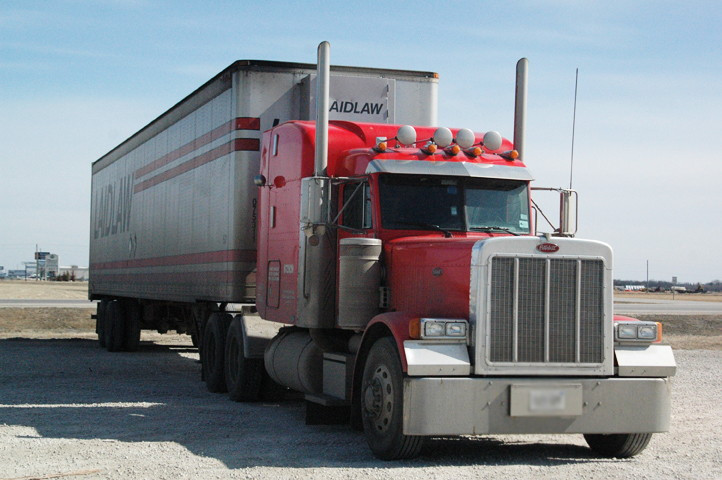Exploring the future of trucking
Trucking symposium sparks commitments to women, environmental sustainability
The trucking industry, long considered a place for gruff men and gas-guzzling long hauls, is moving toward environmental sustainability and more women-friendly labour practices. And it all started in Winnipeg.
Between Feb. 17 and 19, 2010, Winnipeg hosted the Future of Trucking Symposium, a series of presentations on the direction of an industry that, according to the Canadian Trucking Human Resources Council (CTHRC), generates $67 billion a year and employs 500,000 people in Canada.
“The symposium focused on two key issues within the industry, fuel economy and labour,” said Paul Larson, director of the University of Manitoba Transport Institute, which hosted the symposium.
Both issues can be tackled through investments in more sustainable capital equipment and a campaign to increase the appeal of trucking to new demographics, he said.
“We anticipate that the trucking industry will need tens of thousands of new drivers in the coming years,” said Ellen Voie, president of the Women in Trucking Association Inc., an American special interest group. “We believe that part of the pool they can recruit from are women and other demographics other than just white males.”
According to the CTHRC, women make up only three to five per cent of the Canadian truck-driving force and are reluctant to get behind the wheel due to a number of preventable issues within the industry.
“We need to be able to support women in trucking,” said Linda Gauthier, executive director of the CTHRC.
She pointed out that privately-run truck stops often have facilities that cater only to men. She said the industry needs to develop standards that are more inclusive to female drivers.
Voie said that many women are afraid to drive alone, a situation buoyed by rampant, but largely unreported, sexual harassment.
“Women endure quite a lot of harassment on the road, particularly by other male drivers, and we must make sure that companies instil respect,” Voie said, suggesting that the initial driver-training program should establish guidelines about respectful behaviour.
The industry keeps no statistics on harassment or sexual assault, she added.
Although reaching out to women is important for many, the critical concern for trucking advocates is the question of sustainability.
The move toward greener technologies has been sparked by the idea that inexpensive fossil fuel resources have peaked in availability. As such, alternatives need to be found before conventional diesel engines become obsolete, said Larson.
“There’s no single silver bullet when you’re talking about sustainability,” said Rick Whittaker, vice president of investments for Sustainable Development Technology Canada, a not-for-profit agency that finances and supports clean energy technologies. “It is more like a silver buckshot.”
A “buckshot” involves many different components, both large and small, that must build on one another to meet sustainability goals, he said.
Among the smaller components is the suggestion to increase the use of long-combination vehicles – regular truck engines able to pull two trailers of freight without expending double the energy that make up less than 10 per cent of all trucks in North America.
More of these vehicles “would certainly ease the labour crunch and, more importantly, increase fuel economy,” Larson said.
Whittaker further suggested that the industry should make truck transportation more localized and improve rail infrastructure for long-haul freight transportation.
He added that the next 20-40 years will yield a move toward electric-powered engines in trucks across North America.
“The whole world is going that way,” he said.
Published in Volume 64, Number 25 of The Uniter (April 1, 2010)







